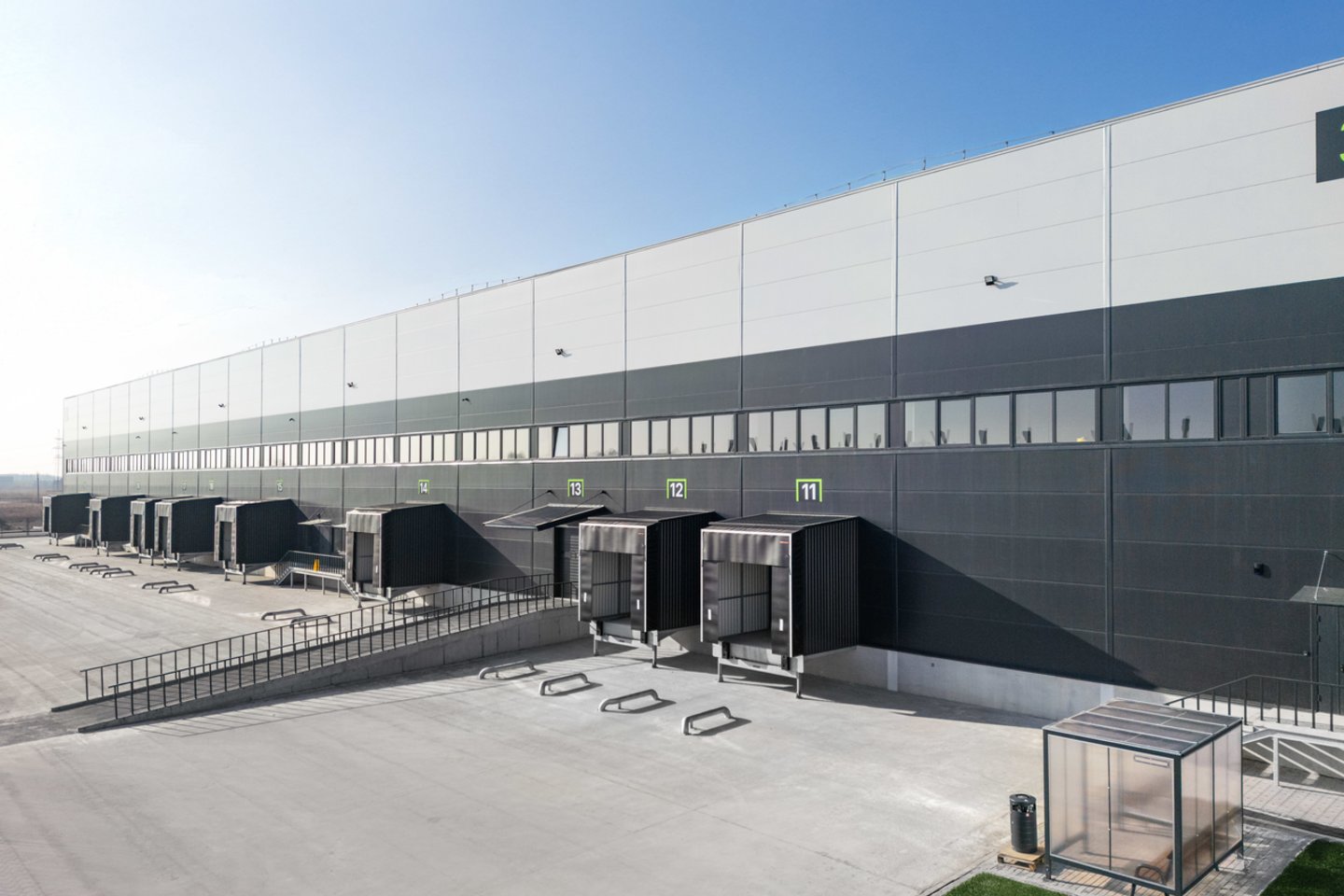The warehouse sector is experiencing a period of rapid renewal

According to an Ober-Haus review, a decline in revenues is already being recorded for the period 2024-2025, despite the performance of warehousing and transport companies in Lithuania reaching record highs in 2023. According to the State Data Agency, the sales revenues (excluding VAT) of warehousing and storage companies in Lithuania in the first quarter of this year totalled EUR 70 million — 10.7% lower than in the same period of 2024.
“Meanwhile, investment in new warehouse construction remains very strong, suggesting that the sector is undergoing a period of renewal as older warehouses, built 15–25 years ago, often fail to meet the current needs of companies,” says Raimondas Reginis, research manager for the Baltics at Ober-Haus.
Following a period of record expansion in 2024, five new mixed-use projects were constructed in Vilnius and its surrounding area in the first half of 2025, with a total warehouse area of 70,500 sqm. Projects of various sizes and concepts were completed by companies such as Transekspedicija, Sirin Development, Darnu Group, Transtira and Galio Group. According to Ober-Haus estimates, the total warehouse space in Vilnius and its surroundings increased by 7% to 1,080,000 sqm.
In addition to traditional warehouses, companies are continuing to invest in multifunctional projects (stock-office), at least half of which is usually intended for storage. The rapidly growing number of new storage facilities, which are being developed not only by developers building for rent, but also by large companies implementing projects for their own needs, has recently increased the total area of vacant premises. During the first half of 2025, the vacancy rate for storage facilities in Vilnius and the surrounding area increased from 5% to almost 7%. “This is the highest level of vacant premises since 2011. Companies building large logistics centres for their own use are gradually freeing up space in older projects, while newly implemented and marketed projects often open with only partial leasing,” notes R. Reginis.
In the first half of 2025, two new warehouses were built in Kaunas city and its surroundings, adding almost 65,000 sq m to the modern warehouse market. At the request of furniture manufacturer Freda IV, YIT Lietuva completed construction of one of the largest warehouses in Lithuania in the Kaunas Free Economic Zone. Almost 50 million euros were invested in the 60,000 sq m warehouse and its administrative premises. Meanwhile, Sirin Development built a 12,000 sq m warehouse in the Kaunas Free Economic Zone for the beverage manufacturer Coca-Cola HBC Lietuva. Following these projects’ implementation, the total warehouse area in Kaunas city and its surroundings increased by almost 10% to 742,100 sq m. According to Ober-Haus, the warehouse vacancy rate reached almost 4% in mid-2025.
No major warehousing projects have recently been implemented in Klaipėda city or its surroundings, with more investment being made in multifunctional projects instead. These projects are located near the city limits and main city streets and can be adapted very flexibly to meet the needs of tenants, offering premises suitable for offices, retail outlets, catering facilities and warehousing in various combinations. Examples of such projects include: “Acorn Business Park”, “Jūros miestas” and “Liepu Parkas”. Meanwhile, the freight transportation and logistics company Vlantana plans to invest in larger warehouses and is set to build two additional warehouses totalling around 40,000 sq m next to the warehouse complex managed by the Vilnius–Klaipėda highway. According to Ober-Haus, the total area of warehouse premises in Klaipėda city and its surroundings was 377,500 sq m in mid-2025, with over 7% vacant.
“Rental prices for warehouse premises in the Vilnius, Kaunas, and Klaipėda regions remained stable in the first half of 2025. Since the warehouse premises market is regularly supplemented with new space and many potential tenants are still cautious about expansion or renovation, the bargaining power of owners is currently limited,” says R. Reginis.
According to Ober-Haus calculations, in mid-2025, modern warehouse premises in the Vilnius, Kaunas and Klaipėda regions were most often offered for rent at 4.2–5.8 Eur/sq m, while older buildings were offered at 2.0–4.0 Eur/sq m. According to R. Reginis, similar trends are likely to persist in the warehouse premises sector in the second half of this year. This means that tenants will have a wide selection of premises and will remain in a strong bargaining position regarding leases.
Latest news
 All news
All news

The warehouse sector is experiencing…
Coca-Cola HBC Lietuva warehouse, photo by SIRIN Development According to…

The options available to office…
Avion Express office, Donaldas Žvybas photo According to the Ober-Haus…

Rising house prices are not…
Edita Juočytė, Investment and Analysis Project Manager at Ober-Haus The…
 All news
All news